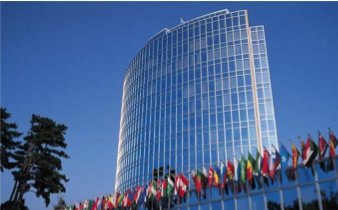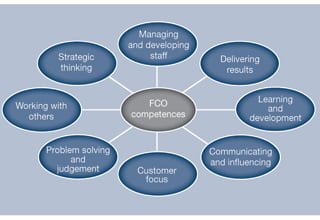
Constant change places demands on organisations. To meet these challenges, organisations need to be dynamic and adaptable. They need to have the right people in place to meet changing needs. This involves having workforce plans that encompass the whole organisation. This planning ensures that an organisation can achieve its objectives not just now but also in the future.
The Foreign and Commonwealth Office (FCO) is the government department that is responsible for promoting British interests overseas. It helps UK companies to do business around the globe. It also supports British citizens if they get into trouble abroad. The department has around 2,700 people working in the UK and another 1,800 British employees working overseas.
In the past, the FCO was seen as a very traditional, male-orientated environment. However, demands on the FCO have changed. As well as the traditional values of public service, the FCO requires people with more varied talents and qualities. It wants individuals with ambition and creative skills and with the confidence to work alone or within teams.
To fulfil the many roles within the department, the FCO now actively seeks candidates from all universities and from all backgrounds. Applicants may have a degree in any subject. What the FCO looks for are men and women who can apply their knowledge and skills to many different tasks. These can range from providing consular services overseas, including supporting British citizens caught up in terrorism or natural disasters when abroad, to helping co-ordinate and implement foreign policy.
The FCO is looking for people with transferable skills. It wants people who are good at team working, as well as those with the ability to lead and take on responsibility. It wants people who can adapt easily to change, individuals who can undertake many different roles and responsibilities within the organisation. This helps the FCO to change and respond to its fast-moving environment.
Workforce planning
The staffing needs of an organisation change constantly. Without proper planning, an organisation may suffer from skills shortages. It may be unable to provide a good service because it does not have sufficient staff with the right experience.
Workforce planning involves estimating the present and future staffing requirements of the organisation. It needs to take into account that:
- existing employees may retire, resign or get promoted
- new technology may change working methods and require different skill sets
- more staff (or staff with different skills) may be needed to fulfil new business or operational requirements.

The process helps the FCO to identify what skills it needs to deliver its strategic objectives. It helps it assess the skills available within the existing workforce and see where there might be gaps in the future.
The FCO, for example, faces a shortage of skills in IT, economics and some languages.
The planning process also enables the FCO to assess its staffing needs both in terms of roles and the geographical deployment of staff. The department needs ‘generalists’, such as administrative assistants, operational officers and team leaders. It also needs specialist staff, such as economists, legal advisers and research analysts.
FCO sites around the world are staffed by a mix of career diplomats, both specialists and generalists, and locally engaged employees.
Workforce planning

Workforce planning involves thinking ahead to fit individuals with the right skills into different parts of the organisation. It allows organisations to focus their recruitment activity. It provides a forecast of whether present and future needs can be met by existing staff. Where staff cannot be retrained or redeployed, organisations draw up job descriptions to start the recruitment process.
The FCO has to undertake this planning in the context of the current political and economic environment. In post-recession Britain, the public sector is faced with budgets cuts. Government departments are being asked to make efficiency savings. This may put a squeeze on recruitment.
Workforce planning can be a challenge. As an organisation with operations in countries across the world, the FCO has to ensure balanced workloads for employees both within the UK and overseas. It faces the challenge of rotating staff between different overseas postings.
Employment legislation

The FCO also needs to comply with employment legislation. This may mean having to change working practices. For example, employees now have a legal right to apply for flexible working.
Some people wish to do this when their personal circumstances change, such as when they have very young children. They can find it difficult to work a standard eight-hour day in normal office hours. So, for example, they may wish to work part-time or to organise their working day to fit with their domestic responsibilities. This involves employers adapting working patterns to suit individuals’ needs. However, it does allow them to retain staff who might otherwise be forced to resign.
Recruitment
It is important that the FCO attracts and retains talented staff.

The recruitment process starts by attracting candidates to apply for vacancies. In the past, the FCO was seen as an organisation that only recruited people from a narrow academic background. This was a barrier and stopped many talented people from applying for posts.
Today, in order to get the best people, the FCO seeks to reach a wide audience. It advertises vacancies in newspapers and through its website. It wants to attract a diverse range of candidates. This enables the FCO to be inclusive. It also helps to change public perceptions of the organisation. This helps the FCO to deliver the best possible service.
There are three different levels for recruiting generalist staff. The entry qualifications vary, reflecting the different nature and type of roles within the FCO.
- Administrative Assistants at this level, candidates need a minimum of two GCSEs, plus IT and office skills, as well as interpersonal and communication skills.
- Executive Assistants requires a minimum of five GCSEs, plus team working skills, the ability to manage workloads and handle conflicting priorities.
- Policy Entrants this level requires a degree. Competition for places is very tough and successful candidates will be expected to progress to jobs with a high level of responsibility.
Vetting
The FCO wants to recruit people interested in international affairs. They must be interested in serving the interests of the UK. However, they could come from any background or community. Applicants for the FCO have to undergo a vetting process. It is important that candidates can meet the strict security requirements.
Elisha joined the FCO in January 2007 as an administrative assistant after completing a degree in public administration with managerial studies at De Montfort University, Leicester. ‘As an administrative assistant you are a small but vital cog in the grand machine of the FCO. There are loads of learning and development opportunities at this grade, as well as time to think about where you are and how you want to develop within the FCO.’
Competencies

The FCO uses a competency framework to assess its staffing needs. Competences help to describe the knowledge and skills that the organisation needs at each level. They provide a framework that helps to identify what actions and behaviours might be expected from individuals within the workplace.
FCO then creates job descriptions. These highlight the key roles and responsibilities for each post. For example, these are skills and experience needed for the position of Legalisation Officer:
- experience of working with members of the public
- experience of administrative work
- experience of organising and prioritising workloads
- ability to communicate clearly and concisely, both orally and in writing
- ability to follow set procedures and established guidelines
- ability to produce accurate work to tight deadlines under pressure
- good numeracy skills
- knowledge of Word, Excel, Outlook and databases.
Selection
The FCO has a policy of fair and open competition for posts. The process of selection involves identifying the most suitable candidate for each job. Usually external candidates must:
- submit a written application
- undertake group exercises and presentations at an assessment centre
- sit a job interview.
Each stage of this process helps the FCO to explore the capability of each candidate for the vacancy. It also provides an assessment of the future potential of applicants. The process helps the FCO develop diversity within its workforce by being more open to individuals from different ethnic and social backgrounds.
Managing a career

Once working within the FCO, people are encouraged to manage their own careers. Rather than managers or the Human Resources department allocating new jobs to individuals when they want to move sideways or win promotion, people can choose which direction they want to take.
The internal recruitment process for jobs has become more open with all posts filled on the basis of job interviews. To gain promotion and be eligible to apply for jobs at a higher grade, staff must apply for and pass an assessment centre.
Joanna joined the FCO as an Executive Assistant in 2001: ‘The great thing about the FCO is that you never get pigeonholed in one particular career path. I joined with a degree in geography and a background in recruitment, I’m now working as a diary secretary for one of the ministers. Your options are wide open. We move jobs every two to three years, taking our new skills from one job onto the next. If you want to try something completely different, you can.’
Developing people
Building skills and competencies
Having appointed staff, FCO believes it is important that they are provided with the opportunity to reach their full potential. Staff development involves building the competences and skills of individuals within the workplace.

The FCO provides many opportunities for staff development. These include:
- training staff may attend courses or undertake a form of self-study
- personal development this may be through a coaching or mentoring programme designed to increase the confidence and capabilities of individual members of staff
- secondment or shadowing this enables individuals to find out about new areas of work and responsibilities.
The FCO encourages its staff to make full use of these development opportunities.
Its approach to diversity provides the appropriate support to individuals from different backgrounds and to those staff with disabilities. The aim is to give people the skills and confidence to take responsibility for their careers.
Job progression

The opportunity to move jobs and switch roles provides staff with a broad range of skills and experiences. This benefits the FCO. It also enables staff to manage their own path within the organisation and to further their careers through promotion.
James Berry has benefited from this approach to career development. James is now Deputy Head of the Overseas Learning and Development Team. ‘The modern FCO is set up in such as way as to equip its staff with relevant, transferable skills. I genuinely feel that the organisation is committed to investing in my future.’
Conclusion

To deliver the best possible service, the FCO needs good quality people. The process needs tobe managed. The key is to engage in workforce planning.
Workforce planning helps the FCO to identify its employment and succession management requirements. Engaging in this process enables the FCO to meet its objectives to promote British interests overseas and to support British citizens and businesses around the globe.
